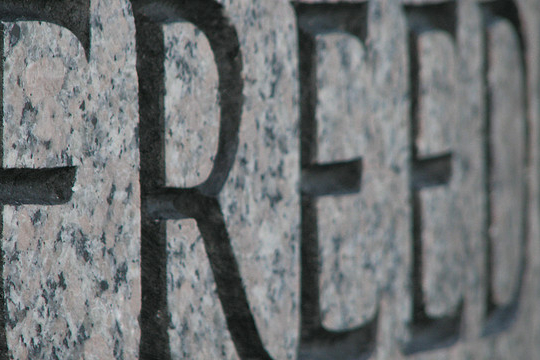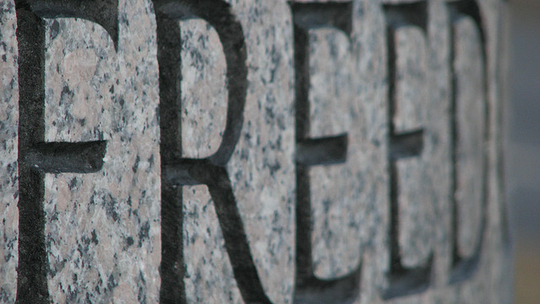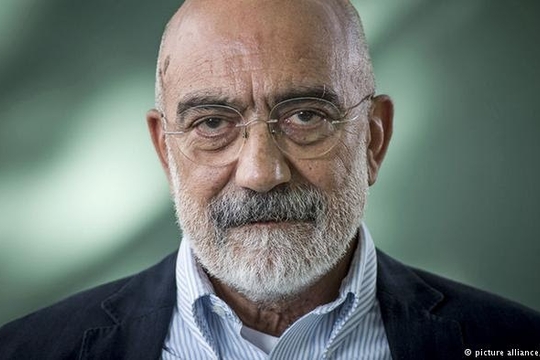

Het zal u niet echt verbazen dat democratische landen makkelijk hoger gerangschikt staan dan de autoritaire regimes. De paragraaf hieronder geeft u een beeld van de twee uitersten:
The Nordic countries have again demonstrated their ability to maintain an optimal environment for news providers. Finland (1st, 0), Netherlands (2nd, +1) and Norway (3rd, -2) have held on to the first three places. Canada (20th, -10) only just avoided dropping out of the top 20. Andorra (5th) and Liechtenstein (7th) have entered the index for the first time just behind the three leaders. At the other end of the index, the same three countries as ever – Turkmenistan, North-Korea and Eritrea – occupy the last three places in the index. Kim Jong-un’s arrival at the head of the Hermit Kingdom has not in any way changed the regime’s absolute control of news and information. Eritrea (179th, 0), which was recently shaken by a brief mutiny by soldiers at the information ministry, continues to be a vast open prison for its people and lets journalists die in detention. Despite its reformist discourse, the Turkmen regime has not yielded an inch of its totalitarian control of the media.
Maar we zien ook opvallende verbeteringen en dalingen waarbij vooral de toename of afname van geweld tegen journalisten een belangrijke rol speelt:
Malawi (75th, +71) registered the biggest leap in the index, almost returning to the position it held before the excesses at the end of the Mutharika administration. Côte d’Ivoire (96th, +63), which is emerging from the post-electoral crisis between the supporters of Laurent Gbagbo and Alassane Ouattara, has also soared, attaining its best position since 2003. Burma (151st, +18) continued the ascent begun in last year’s index. Previously, it had been in the bottom 15 every year since 2002 but now, thanks to the Burmese spring’s unprecedented reforms, it has reached its best-ever position. Afghanistan (128th, +22) also registered a significant rise thanks to the fact that no journalists are in prison. It is nonetheless facing many challenges, especially with the withdrawal of foreign troops.
Mali deed het tot voor 2012 opvallend goed, maar zakt helemaal weg:
Mali (99th, -74) registered the biggest fall in the index as a result of all the turmoil in 2012. The military coup in Bamako on 22 March and the north’s takeover by armed Islamists and Tuareg separatists exposed the media in the north to censorship and violence. Tanzania (70th,-36) sank more than 30 places because, in the space of four months, a journalist was killed while covering a demonstration and another was murdered.
En elders:
Journalists in Israel (112th, -20) enjoy real freedom of expression despite the existence of military censorship but the country fell in the index because of the Israeli military’s targeting of journalists in the Palestinian Territories. In Asia, Japan (53rd, -31) has been affected by a lack of transparency and almost zero respect for access to information on subjects directly or indirectly related to Fukushima. This sharp fall should sound an alarm. Malaysia (145th, -23) has fallen to its lowest-ever position because access to information is becoming more andmore limited. The same situation prevails in Cambodia (143rd, -26), where authoritarianism and censorship are on the increase. Macedonia (116th, -22) has also fallen more than 20 places following the arbitrary withdrawal of media licences and deterioration in the environment for journalists.
De impact van grote protestbewegingen (lees: Arabische Lente) hebben verschillende gevolgen teweeggebracht in het Midden-Oosten:
Some of the new governments spawned by these protest movements have turned on the journalists and netizens who covered these movements’ demands and aspirations for more freedom. What with legal voids, arbitrary appointments of state media chiefs, physical attacks, trials and a lack of transparency, Tunisia (138th, -4) and Egypt (158th, +8) have remained at a deplorable level in the index and have highlighted the stumbling blocks that Libya (131st, +23) should avoid in order to maintain its transition to a free press. The deadliest country for journalists in 2012 was Syria (176th, 0), where journalists and netizens are the victims of an information war waged by both the Assad regime, which stops at nothing in order to crack down and impose a news blackout, and by opposition factions that are increasingly intolerant of dissent. In Bahrain (165th, +8) the repression let up slightly, while in Yemen (169th, +2) the prospects continue to be disturbing despite a change of government. Oman (141st, -24) fell sharply because of a wave of arrests of netizens.
Ook politieke instabiliteit is nefast voor journalisten en persvrijheid. Het maken van onafhankelijk nieuws wordt opvallend moeilijker en geweld tegen journalisten neemt in deze landen makkelijk de bovenhand:
Maldives (103rd, -30) fell sharply after the president’s removal in an alleged coup, followed by threats and attacks on journalists regarded as his supporters. In Paraguay (91st, -11), the president’s removal in a parliamentary coup on 22 June 2012 had a big impact on state-owned broadcasting, with a wave of arbitrary dismissals against a backdrop of unfair frequency allocation. Guinea-Bissau (92nd, -17) fell sharply because the army overthrew the government between the first and second rounds of a presidential election and imposed military censorship on the media. In Mali (99th, -74), a military coup fuelled tension, many journalists were physically attacked in the capital and the army now controls the state-owned media. This index does not reflect the January 2013 turmoil in the Central African Republic (65th, -3) but its impact on media freedom is already a source of extreme concern.
Een laatste belangrijk punt zijn de democratische landen die stagneren of achteruitgaan:
The situation is unchanged for much of the European Union. Sixteen of its members are still in the top 30. But the European model is unravelling. The bad legislation seen in 2011 continued, especially in Italy (57th, +4), where defamation has yet to be decriminalized and state agencies make dangerous use of gag laws. Hungary (56th, -16) is still paying the price of its repressive legislative reforms, which had a major impact on the way journalists work. But Greece’s dramatic fall (84th, -14) is even more disturbing. The social and professional environment for its journalists, who are exposed to public condemnation and violence from both extremist groups and the police, is disastrous.
U kan het volledige rapport hier downloaden.




